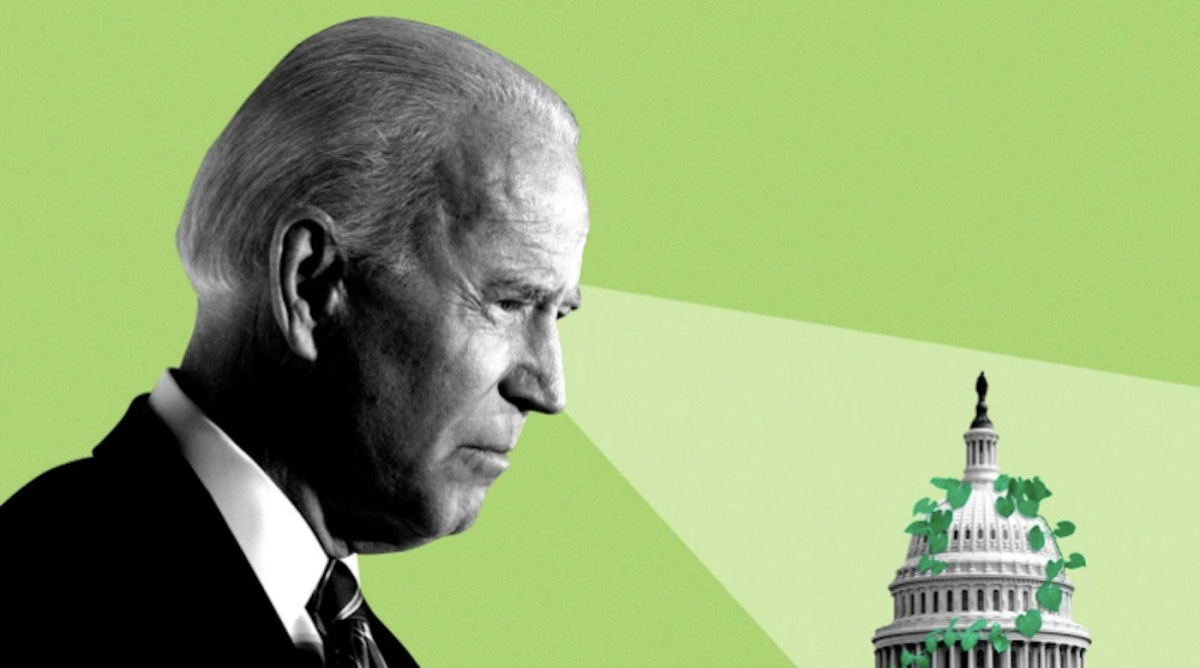Weekend Reading 2021 03-06
Americanization of French Philosophy, Italy's Giorgia Meloni, Biden and "Green Imperialism"?, Freddie deBoer's Drug Regimen, Greece's Vlach Shepherds
One of the purposes of this weekly reading list is to highlight writing that you won’t find in wide circulation. You will have to forgive me this week as we’re opening up with a piece from the NY Times, but the mitigating factor is that it is written by the great Christopher Caldwell, and on a very important subject: the Americanization of political, historical, and cultural debate in France.
The French have long been the leaders of philosophy in the modern West, utterly dominating the 20th century with thinkers like Sartre, Derrida, Foucault, Baudrillard and others. The thoughts of many of these men have significantly influenced academia in the West, to the point where Michel Foucault is now the most cited individual in academic history. It is not uncommon for French television to broadcast philosophical debates on prime time television. The culture exists and is public, unlike in the much of the rest of the world.
Yet this French scene can for outsiders seem a bit opaque, as it very, very French, and riven by factionalism and personality clashes, impenetrable to all except those paying close attention. French philosophy was a world of its own, dominant, setting the tone and parameters of discussion and debate, and being very French about it.
No more.
Macron recently lashed out at the rise of American identity politics on French soil, equating it to a form of invasive species. Many American commentators took delight in pointing out the irony that Identity Politics draws heavily from French Philosophy, but the French weren’t having it.
Many French people see American-style social-justice politics as a change for the worse. President Emmanuel Macron does. In the wake of the death of George Floyd in police custody last spring, protests and riots across America brought the dismantling of statues and other public symbols — sometimes on the spot, sometimes after further campaigning and agitation. Aware that such actions had found a sympathetic echo among some of his fellow citizens, Mr. Macron warned that France would not follow suit. “It will not erase any trace or name from its history,” he said. “It will not forget any of its works. It will not topple any statues.”
By last fall Mr. Macron was also inveighing against foreign university traditions. “I’m thinking of the Anglo-Saxon tradition, which has another history, and it is not ours,” he said, before singling out “certain social-science theories imported from the United States of America.”
The tyranny of the primacy of human rights:
Mr. Gauchet, for instance, has studied with alarm the slow ouster of democratic principles by the very different principles of human rights. “The touchstone in the system,” he warned in 2007, “is no longer the sovereignty of the people but the sovereignty of the individual, defined, ultimately, by the possibility of overruling the collective authority.” Human rights, often imposed by courts or centralized administrative bodies, could wind up pitting democracy against itself.
The growing threat of Americanization:
“There is a mighty ideological wave coming from the United States,” the philosopher Yves Charles Zarka wrote last fall in an article about the death of Le Débat. “It brings rewriting history, censuring literature, toppling statues, and imposing a racialist vision of society.” Nor is it as iconoclastic as it looks, according to Luc Ferry, a philosopher and conservative columnist. “However anticapitalist and anti-American they may think themselves,” he wrote last year, “these activists are only aping whatever has been going on on campuses across the Atlantic over the last four decades.”
The smartphone is an American cultural ICBM in the pocket of every non-American, which is why the Chinese have led the way in the banning of US social media. How will the French fight off the Americanization of their philosophy?
A little over a year ago Matteo Salvini seemed destined to take the reins of power in Italy. The former ruling social-democrats of the PD were bleeding support and were divided among themselves while the broad populists of the Five Star Movement (M5S) were having difficulty governing and keeping their many internal factions aligned.
Salvini went for gold by trying to take down the government, timing it with the peak of his and his party’s popularity. His gambit failed and LEGA was punished for it, dropping in the polls from the mid-30s down to the mid-20s. The added blow of COVID meant that his constant campaign style had to be suspended, rendering him just another talking head. He has lost his legs.
In the meantime, the FdI (Fratelli d’Italia/Brothers of Italy) Party began to eat into some of LEGA’s support, thanks to its own charismatic leader, Giorgia Meloni. From Rome, she has boosted the party’s profile and support to where it is now level with the PD. FdI, with its roots in the neo-fascist Italian Social Movement, has moved to the centre-right under Meloni, with the party positioning itself as both sovereignist and conservative. The American Conservative has published an interview with her which gives us a peek as to the party’s platform and views.
Much of the interview is your standard boilerplate talking points, so I’ll highlight only a few key excerpts.
On mixing sovereignty with conservatism:
MELONI: I think it is not always easy to clearly distinguish between these two galaxies. In Italy, for example, it is not easy at all—that’s why both words sovranisti (sovereigntists) and conservatori (conservatives) appeared in our party’s logo at the last European elections [2019]. They are two terms that do not overlap but can still coexist—and the large patriotic and identity parties have a duty to ensure that they do coexist.
If we think about it, there is no true sovereignty without a defense of traditional values—because the identity of a people rests on them. Similarly, there is no conservatism without a love of country and a defense of national interests. The real challenge then is not to see one outweigh the other, since this would play right into the hands of the globalists but rather to make a virtuous synthesis so that both can grow—to make patriotic parties and their ideas grow.
This here is the most important excerpt. Meloni is talking out of both sides of her mouth i.e. wanting to have her cake and eat it too:
MELONI: Europe and the United States are the two pillars of the West. They must necessarily remain allies. The strategic autonomy of Europe is a necessity, particularly in order to build the [European political landscape]; but this should not be interpreted as friction with the U.S.
Unlike the many fanatical Biden enthusiasts, I do not believe that Europe will particularly benefit from the new U.S. administration. Of course, we must at the very least hope that Biden will not start to inflame—as per Democratic tradition—the Middle East or other crisis scenarios close to us. The consequences of such actions would be anything but positive or friendly for us Europeans.
The USA isn’t going to tolerate any European ‘strategic autonomy’.
And here she places herself as a willing puppet of US interests vis a vis China:
MELONI: I consider China a great challenge—but also a great threat. I am, of course, not referring to the Chinese people, who have a thousand-year history that I deeply respect. I am referring to the Chinese Communist Party that has built the greatest socialist dictatorship on the planet, combined with the most ferocious system of contemporary capitalist exploitation.
This is why rebalancing the global market—moving from the unregulated globalization of free trade to a balanced market under the banner of “fair trade”—is for us a lodestar. This must be combined with the protection of human rights and a defense of religious freedom: what is happening in Hong Kong or the persecution of Catholic or Uighur minorities is not acceptable.
European centrists and even some liberals are showing much more interest in European strategic autonomy than Meloni, Merkel included.
Meloni has tied her party to Atlanticists in the USA such as Yoram Hazony. How long can Meloni continue this balancing act? When will she be found out?
We are all well aware of the USA using human rights as a cudgel for the sake of maintaining and expanding its own empire, but what about Climate Change? What if the USA creates a new tool of empire whereby it reserves for itself the right to upend the sovereignty of others in the name of environmentalism and fighting climate change?
Jonathan Tennenbaum sounds the alarm on this threat:
In his January 27 “Executive Order on Tackling the Climate Crisis at Home and Abroad,” US President Joseph Biden declares that his administration aims at “putting the climate crisis at the center of United States foreign policy and National Security.”
…….
There may be a method in the madness, however. By implication, Biden’s executive orders make the release of CO2 in any corner of the world into a US national security issue. The forthcoming National Intelligence Estimate would provide the basis for using the resources of the US intelligence community and national security apparatus to enforce administration climate policies on a global scale.
So much like the USA puts out a biased scorecard on ‘freedom’ which grades individual states globally on a sliding scale, there is a scenario where the Americans will begin to grade states based on environmental criteria.
Some will say: that’s good. But can the USA be trusted as the scorekeeper? These past three decades clearly tell us that it can’t.
How this tool can be implemented:
That has ominous implications. The construction of a new highway, pipeline, factory or power plant in a developing country, which might lead to increased CO2 emissions, could in principle be classified as a threat to US national security.
Depending on the case, the US administration would thereby feel justified or even compelled to stop such projects. Green imperialism thus becomes a duty of the US government. One should consider the magnitude of the interventions and conflicts which may result.
To borrow an expression from former president Barack Obama, the US has a variety of “tools” at its disposal to enforce its climate goals on the world. Biden already speaks of the use of carbon tariffs, fees or quotas on carbon-intensive goods from countries that are “failing to meet their climate and environmental obligations.”
Think US sanctions regimes. Think the pressure being applied overtly against Nord Stream 2. Think about covert pressure against China’s OBOR.
Subterfuge:
But there is much more in the toolbox. Climate goals provide ample justification for strong interventions into the domestic politics of nations, including support for selected parties, social movements and NGOs.
China as the primary target:
During the electoral campaign, Biden declared: “I will lead a diplomatic initiative to get every nation to go beyond their initial commitment” to reducing CO2 emissions. “This is especially true for China, by far the world’s largest emitter of carbon. We will not only hold their leaders accountable for reducing carbon output at home, in their country but make sure they stop financing billions of dollars of dirty fossil fuel projects all across Asia.”
It is true that many of the projects sponsored by China in the context of its Belt and Road Initiative involve the construction of fossil fuel power plants and fossil fuel infrastructure.
Chinese banks are presently the main source of financing for coal power plants worldwide, with Chinese financing and Chinese companies involved in at least 240 coal projects, including in Vietnam, Bangladesh, Pakistan, Kenya, Ghana, Malawi, Zimbabwe, Egypt, Tanzania, and Zambia.
Hitting Russia as a twofer:
Note that pipeline projects have long played a role in tensions between the US and Russia (and earlier the Soviet Union). Most prominent, of course, is the North Stream 2 project linking Russia and Germany, which Trump and now Biden have pledged to stop.
But there is more. Russia would be one of the biggest losers from CO2 reductions by its oil and gas customers. Fossil fuels make up 60% of Russia’s export earnings and about 30% of its GDP.
Resource wars are in the cards, but with an added green twist.
One of the things that makes Americans very unique is their ability to immediately list off a plethora of pharmaceuticals upon request. I can name Aspirin, Tylenol, Advil, and Tylenol-3 with Codeine because I received it due to dental surgery years ago.
The American though will be able to name all sorts of sleeping aides, painkillers, anti-depressants, and so on. It’s as if pharmacology is a standard high school course alongside civics. Little wonder that they are the most medicated society in the world.
Freddie deBoer (a very engaging writer) has done a public service this past week by sharing with us his pharmacological existence that is used to tamper his bipolar condition. This makes for harrowing and disturbing reading in parts, but I have to thank Freddie for sharing this, not out of a sense of macabre interest (although I will admit to that), but because it is important to understand what people trapped in this world are thinking, and more importantly, experiencing. Is Freddie a reliable narrator? I don’t know. The drugs definitely drive his experience. But we have to give him the benefit of the doubt as none of us are inside of his head like he is.
The background:
As I write this, I have been on a cocktail of psychiatric medications for some 42 months. It has always been difficult, though my tolerance for the pills ebbs and flows. I know that in documenting the effects of these drugs I will be assumed to be speaking out of self-pity. But there are the many who are like me, and there is also the great big bulk of people who do not understand.
In August of 2017 a long-gestating manic phase of my bipolar disorder bloomed into a delusional state. My paranoia and grandiosity reached full flower and I saw a world of enemies intent on destroying me, threatened by to my importance, my power. I said and did unforgivable things, things for which I was and am responsible.
Psychological conflict:
Three and a half years on, I am still working the program, and still living with the consequences. The side effects have always been the largest part of my consistent failure to stay on meds, alongside my persistent self-delusion that I am strong enough to manage my condition myself. I never intend to stop meds when I stop taking them. I just get up one morning, and I am suffering under the influence of some of the side effects, and I just… don’t take them. “I’ll take them tomorrow,” I think, and then I look up and it’s been a month. Despite my recent success in staying on meds it is still the side effects that gnaw at me, every day. It is not an exaggeration to say that they are a constant aspect of my mental life. I think about the side effects I live with every hour of every day. They’re there when I wake up in the morning and they’re there when I go to bed at night.
Weight gain as the most notable side effect:
We might start with the weight gain, as it is impossible to pin on one drug and the most obvious side effect. Weight gain is one of the most widespread and consistent side effects of all manner of psychiatric medications and, for many, one of the major reasons to fear going on them. For me, personally, it has always been a barrier. (I was a gym rat in my prior life.) Certainly the weight gain cannot help but be apparent to people who knew me before I started on meds and see me now. The day I went to the hospital I weighed 177 pounds. Three months of meds later I weighed 235. 177 was not a healthy weight for me either, at 6’1 - when I am manic I work out like a demon and I don’t eat - but still. In those first few months my body expanded so quickly I could hardly believe it. The conventional advice for managing this side effect, diet and exercise, always felt pitiful in comparison to the power of the pills. Through a long process of trial and error I have gotten down to a fairly consistent 220 pounds. But when I slip the progress seems to be erased in a matter of days. Without constant vigilance the weight gain is relentless, unyielding. Due to signs that I have developed pre-diabetes I now take the drug Metformin, which helps regulate my blood sugar.
Lithium:
But lithium has its price. It is a prime culprit in the weight gain and many struggle to remain on the drug for that reason alone. My hands shake, sometimes to the point where I can’t lift a coffee cup to my mouth, thanks to the lithium. I pee more often than a pregnant woman, maybe 10-12 times in a day. And it causes gastrointestinal distress, which is sometimes severe. This can result in nausea and pain, though thankfully this fades for me after several weeks of use. But there are other elements of this gastrointestinal distress, ones which I will not share with you for the sake of propriety. The end result is that I have to constantly worry about having immediate access to a toilet. Trips to Manhattan, notoriously short on public bathrooms, are exercises in nerves, and I have made several dicey subway rides home to Brooklyn.
It just gets worse and worse and worse as the more drugs are shovelled into his system.
My ancestors were semi-nomadic pastoralists most likely up until the late 17th century when they were territorialized and granted land to farm in the Dalmatian highlands by the Venetians, who, together with locals, managed to push back the Ottomans and free up land that needed to be populated to defend coastal towns from a future attack.
These people were known as Vlachs (or sometimes Morlachs, in Dalmatia) and had practised this way of life for an eternity. In the spring they would drive their sheep and cattle up into mountain pastures where they would graze, and then in the fall they would turn around and move into warmer lowland pastures. This process would be repeated every year.
This lifestyle has not entirely died out. My own paternal grandfather spent a few summers as a young man up in the mountains tending to his sheep and cattle. Lucky for him, his summer destination was only 6-7km up the mountain behind our village. Further south in Hercegovina, it was common for pastoralists to travel up to 200km to find their summer pastures. I know people in their 60s and 70s alive today who were born in a hut on a summer pasture. When you ask them where they were born, they can’t give you an address as they were in nature. No permanent structures, no place names, just the name of a mountain and maybe a wood.
Deutsche Welle gives us a look at the last remaining nomadic pastoralists of the Greek Pindus Mountains:
Eleni Tzima and her husband Nasos Tzimas have herded their livestock some 150 kilometers (93 miles) between summer pastures in northwest Greece's isolated highlands down to their winter home in the lowlands for the past 53 years.
The Tzimas family is part of a millennia-old tradition of transhumance, or the seasonal movement of animals between fixed grazing grounds. But that tradition is dying and they are some of the last still practicing this type of farming in the country.
During the summer months the couple, both in their 80s, live in a makeshift hut, using solar energy to power a radio, cellphones and lights. They're among the oldest pastoral shepherds to take part in an annual trek, known as "diava," in the mountainous Pindus National Park near Greece's border with Albania.
Tzima, who says her husband's ill health means their 2020 trek was likely their last, describes their way of life as hard but rewarding.
"We struggle every day from dawn to dusk. I've never had a day off because these animals don't," she said. "I'm used to the cold climate and the quiet of the mountain summer. I didn't choose this life, but if I had a choice, it would be this."
Transhumance is mainly practiced by Greece's indigenous groups like the Vlachs and Sarakatsani, as well as migrants from Albania and Romania. Once relatively widespread, the tradition began to lose popularity in the 1960s and 70s as mechanized agriculture and new farming technologies took over. That shift continued amid rapid urbanization on the back of economic growth in the decades that followed.
UNESCO named transhumance an "intangible cultural heritage" in 2019, and describes it as one of the most sustainable and efficient ways to farm livestock. Moving animals means pastures have time to recover and don't become overexploited, while shepherds can avoid summer droughts by heading to the mountains where snow is melting, and grass is growing.
Migration along well-trodden paths has also shaped the landscape, creating unique, open-space habitats that are home to an array of plants and animals, as well as wildlife corridors for other animals to move through. Some studies also show nomadic grazing livestock may help prevent forest fires.
There are some great photos in the article here.
One last item: In roughly ten days I am turning towards Stanley Payne’s “The Collapse of the Spanish Republic, 1933-36” as the second instalment of the FbF Book Club. If you missed the first you may want to subscribe and join us for this one. Great subject, great book.
Thank you once again for checking out my Substack. Consider subscribing to it. Also, please share it, like it and comment on it.










Love your stuff. As you probably realize, media models need innovation soon. I am "too poor" to actually subscribe to all of the podcasts and substacks and newsletters that I want to support. Like, maybe I can do $1 a month, but since unplugging cable and reallocating that $100 per month to support writers like you, I have blown rapidly past that amount. I only subscribe to two remaining print publications. We need a "bundle" of excellent Substackers that we can pick and choose from and pay a fee to compensate the members of that bundle fairly. I'd love to support you, ,I really would
The French are all archetypal chic nihilists—Foucault and Houllebecq alike